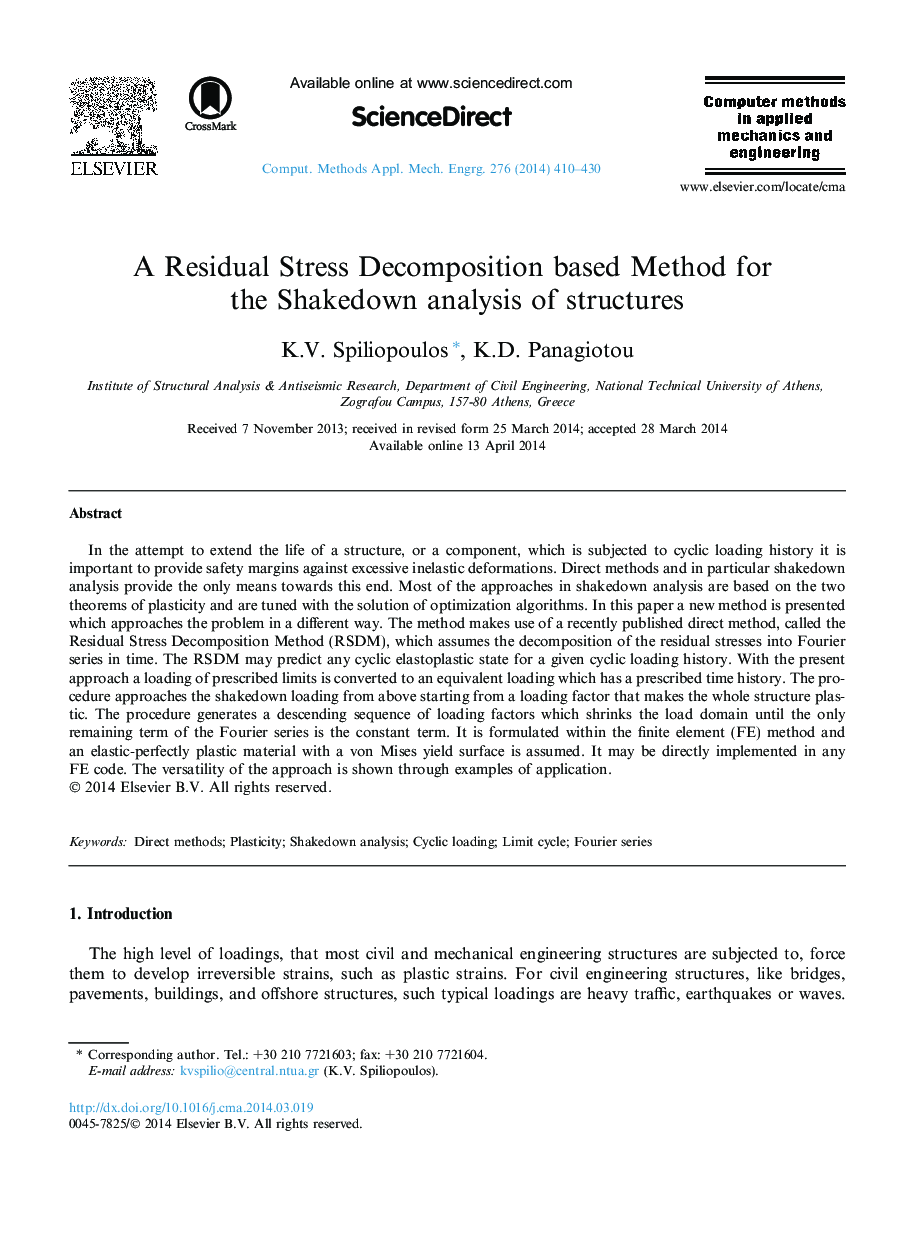| Article ID | Journal | Published Year | Pages | File Type |
|---|---|---|---|---|
| 497940 | Computer Methods in Applied Mechanics and Engineering | 2014 | 21 Pages |
In the attempt to extend the life of a structure, or a component, which is subjected to cyclic loading history it is important to provide safety margins against excessive inelastic deformations. Direct methods and in particular shakedown analysis provide the only means towards this end. Most of the approaches in shakedown analysis are based on the two theorems of plasticity and are tuned with the solution of optimization algorithms. In this paper a new method is presented which approaches the problem in a different way. The method makes use of a recently published direct method, called the Residual Stress Decomposition Method (RSDM), which assumes the decomposition of the residual stresses into Fourier series in time. The RSDM may predict any cyclic elastoplastic state for a given cyclic loading history. With the present approach a loading of prescribed limits is converted to an equivalent loading which has a prescribed time history. The procedure approaches the shakedown loading from above starting from a loading factor that makes the whole structure plastic. The procedure generates a descending sequence of loading factors which shrinks the load domain until the only remaining term of the Fourier series is the constant term. It is formulated within the finite element (FE) method and an elastic-perfectly plastic material with a von Mises yield surface is assumed. It may be directly implemented in any FE code. The versatility of the approach is shown through examples of application.
